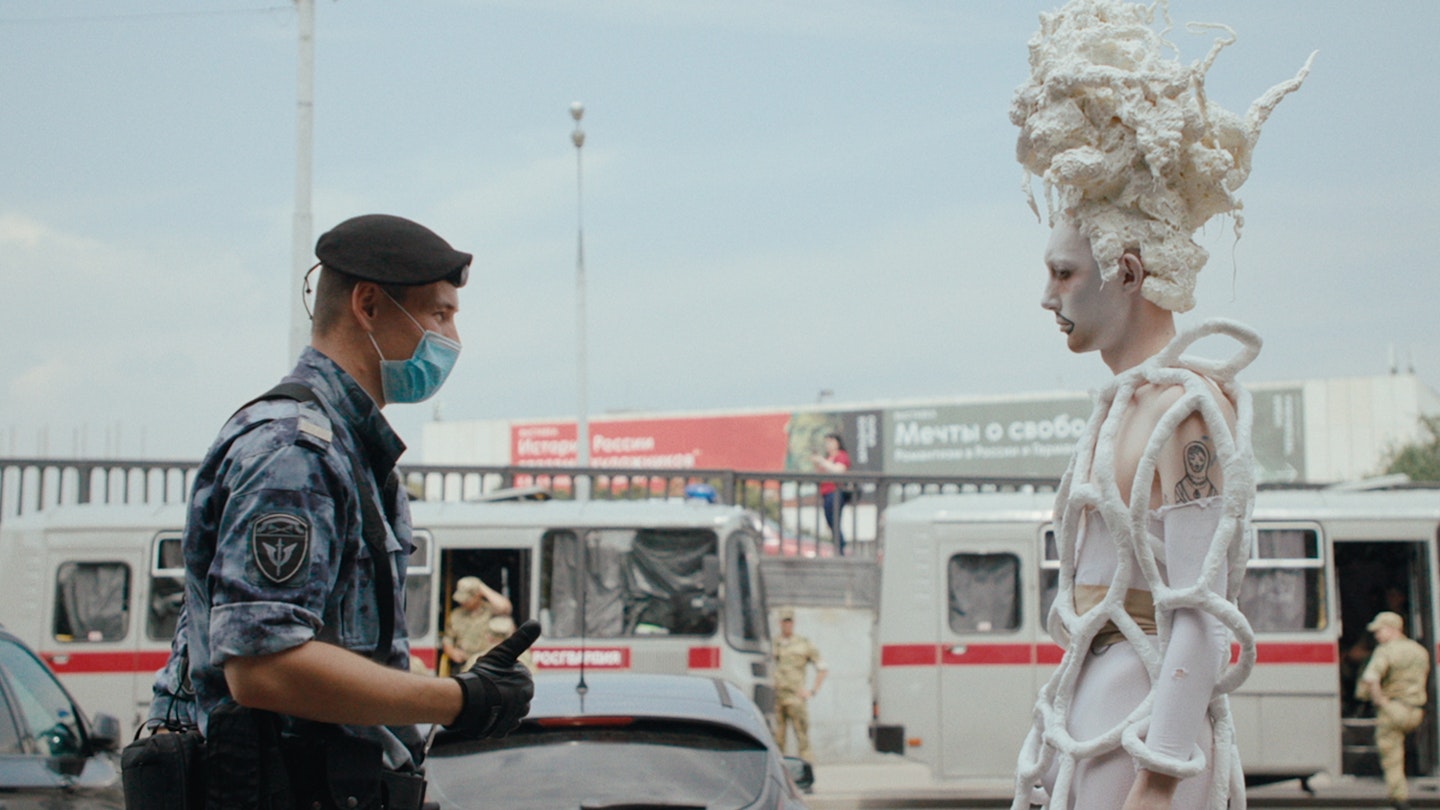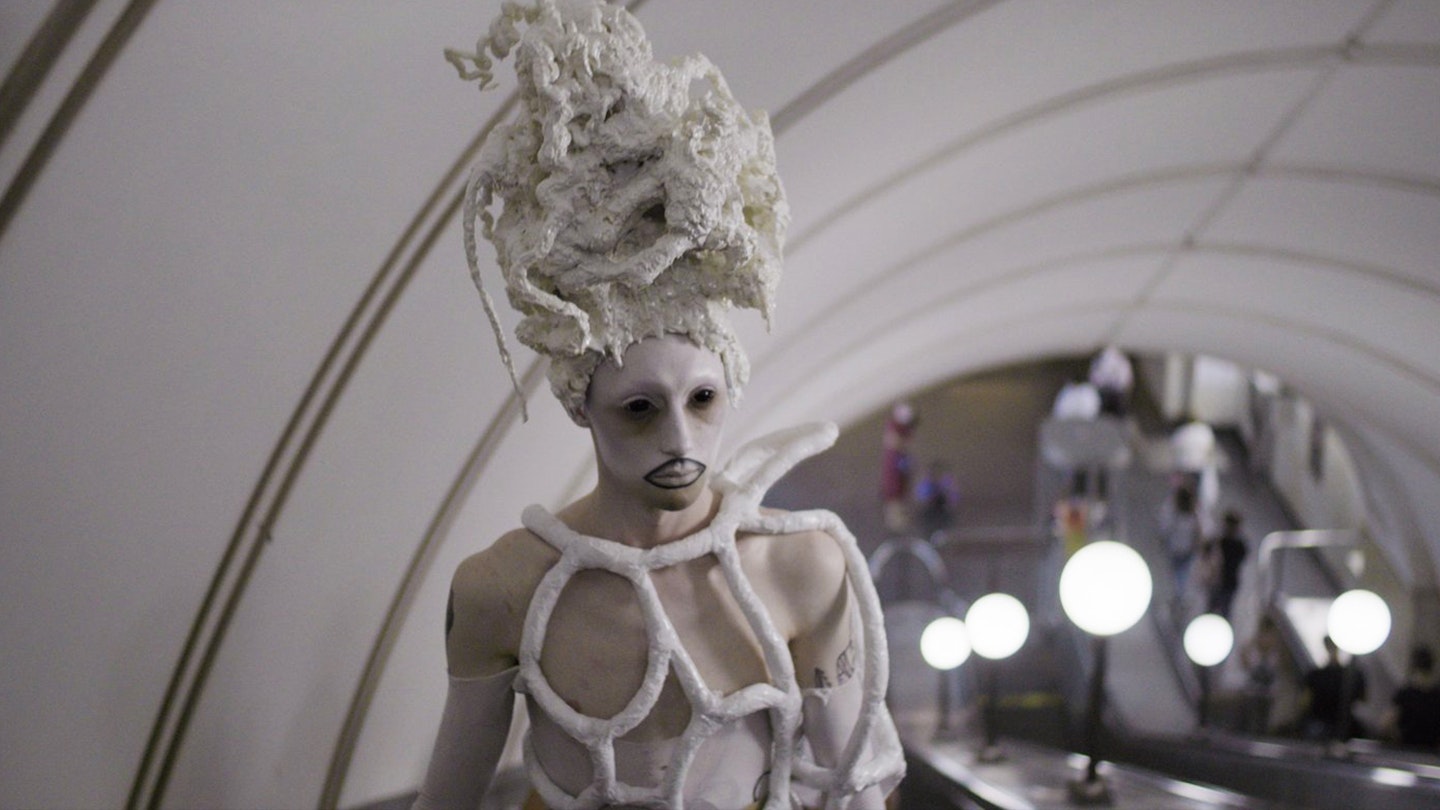Gena Marvin first appears in Queendom — a stirring new documentary from director Agniia Galdanova — regal and resplendent, dressed all in white in a custom outfit with freakish tendrils and beautiful alien make-up. A queer nonbinary artist from a tiny former gold-mining town in Russia’s far east, the film’s opening scenes sees her make a brave walk across frozen ground in vertiginous heels. It’s a neat metaphor for what’s to follow: a quiet act of defiance in a hostile environment.

Marvin has been described in some plot descriptions of the film as a drag queen, which doesn’t really cover it: more than a mere cabaret act, Marvin’s myriad outfits are a thrilling combination of theatricality, circus craft, avant-garde performance art, high camp, and something more otherworldly besides — as if H.R. Giger and Derek Jarman had a grotesque, unsettling baby.
There’s something inherently cinematic about these jaw-dropping, ethereal creations.
There’s something inherently cinematic about these jaw-dropping, ethereal creations. But there is substance to Marvin’s style. In Putin’s Russia, attitudes have hardened and radicalised towards queer people. Mere days before the film was released, the country’s Supreme Court labelled the LGBTQ movement as "extremist" and banned its activities in the country. Marvin’s art is an expression of creative insurgence, boldly stepping into public spaces in her creations, going to supermarkets or sitting on public transport in full costume, where she meets — and highlights on social media — horrific bigotry and violence.
The tragedy of modern Russia descending into authoritarianism and fascism is laid bare here. But it is also a personal-level story. Marvin — just 22 when the film was made — is clearly vulnerable and struggling, desperately seeking connection and direction in a country that now largely rejects any opposition to Putin’s diktats. Marvin’s family are unsupportive, baffled by her lifestyle. Her grandmother calls her “my little oddball”; her grandfather is far more blunt. “Be a normal guy,” he pleads early in the film. Later it becomes uglier, with homophobic slurs casually dished out, her grandfather imploring Marvin to die on the streets like her mother. Marvin’s thousand-yard stare as she quietly endures this is heartbreaking.
Her art is woven fully into the texture of the film: as well as the straight documentarian footage, there are surreal vignettes, Marvin creating visual art with her outfits and her emotions. The meaning may be obvious but it is clear-focused as artistic analogy, and the effect is powerful and moving: elevating the film to an expression of, and celebration of, art as power and rebellion. “Thank God you’re different,” a friend tells her at one point. You can hardly disagree.
